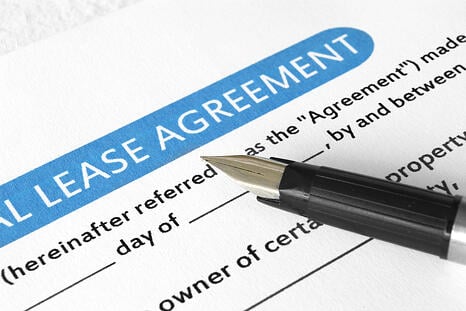 Choosing a lease term isn't always as simple as it seems. The old rules of thumb -- that long-term leases are cheaper while short-term leases are flexible -- still hold true. However, given that business is changing at a faster pace than ever before, more and more companies are finding that the flexibility benefits of a short-term lease are cancelling out the savings that can be found by signing for a longer term. The ease of management that comes from commercial real estate software also supports this decision.
Choosing a lease term isn't always as simple as it seems. The old rules of thumb -- that long-term leases are cheaper while short-term leases are flexible -- still hold true. However, given that business is changing at a faster pace than ever before, more and more companies are finding that the flexibility benefits of a short-term lease are cancelling out the savings that can be found by signing for a longer term. The ease of management that comes from commercial real estate software also supports this decision.
Why Landlords Love Long-Term Leases
For landlords, turnover is almost never a good thing. While bringing in a new tenant can be exciting and can open up new opportunities for a building to attract other complementary businesses, it comes with three different costs. First, the landlord may have to absorb the cost of having a vacant space that is generating neither rental income nor CAM reimbursements while he looks for a tenant. Second, he has to pay commissions to the leasing agent that finds a tenant. Third, he will usually have to make some sort of concession -- like paying for building out the space -- to attract the tenant. Sourcing a tenant can add up to more than a year's rent and reimbursements.
With a strong tenant and a long-term lease, landlords don't have to worry about vacancy as much. A seven-year lease at $30 per square foot with $30 in expenses and concessions works out to $180 per square foot in income or an average of $25.71 a foot. A three-year lease with the same rate and the same expenses and concessions generates just $60 per square foot in income in total -- $20 per year. Even at $35 per foot, the $70 generated works out to $23.33 per year and leaves the landlord behind what he would make with the longer lease. Bear in mind, though, that unless the concessions are coming in the form of free rent, the tenant isn't saving anything.
Why Short-Term Leases Are Cheaper
Do you know what your business will need six years from now? Will today's perfect space still be perfect? What will it cost to tie up enough space today to meet your needs for the duration of a long-term lease, and how will you bear the expense of the unused space until you need it?
Sometimes, you have good answers to all of these questions. If you know that you need a mid-sized sales office, you plan to be in the market for the long-term, and that the current location is going to remain desirable (such as if it is located near an airport), a long-term lease could be the best choice for you since you can end up saving money.
The rest of the time, a short-term lease is almost always the best way to go. That way, when your lease expires, you can usually move out if the space doesn't suit your needs any more. On the other hand, if you want to stay, most landlords will welcome you back with open arms since you can save them from the inconvenience and cost of finding a new tenant. You can mitigate the risk of rent increases or or not being renewed by requesting renegotiation options as a part of your lease, as well.
Short-term leases are also easier to manage than you might expect. Your company's commercial real estate software can help to track the dates so that you don't ever end up without space. Some commercial real estate software even helps you check market rents to ensure you're getting a good deal.
Other articles to check out:
Be on Guard for Hidden CRE Costs
Commercial Real Estate Leasing Tips
Why Use a Commercial Real Estate Broker?
Subscribe to our blog for more Commercial Real Estate tips!








